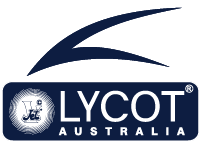JET KNITWEARS LIMITED
POLICY ON INTERNAL FINANCIAL CONTROL
Section 134 (5) (e) of the Companies Act, 2013 requires, the Board of every Listed Company to lay down Internal Financial Control Policy to be followed by the Company which helps in ensuring the orderly and efficient conduct of its business, including adherence to Company’s policies, the safeguarding of its assets, the prevention and detection of frauds and errors, the accuracy and completeness of the Accounting records and timely preparation of reliable financial information.
"Audit Committee" means Committee of Board of Directors of the Company constituted under the provisions of the Companies Act, 2013 and the SEBI (LODR) Regulations, 2015. "Board of Directors" or "Board" in relation to a Company, means the collective body of
Directors the Company. [Section 2(10) of the Companies Act, 2013]
"Books or Books of Account" as per sub-section (12A) of Section 2 of Income Tax Act, 1961 means "Books or Books of account includes ledgers, day-books, cash books, account-books and other books, whether kept in written form or as print-outs of data stored in floppy, disc, tape or any other form of electro-magnetic data storage device."
"Financial Statement" as per Section 2(40) of Companies Act, 2013 in relation to a Company means a Statement which includes --
- a balance sheet as at the end of the financial year;
- a profit and loss account, or in the case of a company carrying on any activity not for profit, an income and expenditure account for the financial year;
- cash flow statement for the financial year;
- a statement of changes in equity, if applicable; and
- any explanatory note annexed to, or forming part of, any document referred to in sub-clause (i) to sub-clause (iv):
"Internal Financial Control" as per Section 134(5) (e) of Companies Act, 2013 means” the policies and procedures adopted by the Company for ensuring the orderly and efficient conduct of its business, including adherence to company’s policies, the safeguard of its assets, the prevention and detection of its frauds and errors, the accuracy and completeness of the accounting records, and the timely preparation of reliable financial information." "Policy" means"Internal Financial Control Policy.
The objectives of this Policy are mentioned as below:
- To mitigate risks and provide reasonable assurance that operations are efficient and effective, assets are safeguarded.
- Financial reporting is accurate and reliable
- To ensure Company’s resources are used prudently and in an efficient, effective and economical manner
- Resources of the Company are adequately managed through effective internal controls
- A framework for an effective internal control system which conveys to managers that they are responsible for ensuring that internal controls are established, documented, maintained and adhered.
- To ensure the propriety of transactions, information integrity, compliance with regulations and achievement of Company’s objectives through operational efficiency.
The procedure of Internal Financial Control begins with Identifying the Objectives, Performing risk assessment, Control Activities, Information and Communication and then Monitoring Activities.
Key aspects with respect to Internal Controls journey are described below:
-
Plan and Scope
-
Perform risk assessment
-
Identify significant controls
-
Resources of the Company are adequately managed through effective internal controls
-
Document Controls
-
Evaluate control design
-
Evaluate operating effectiveness
-
Identify and remediate deficiencies
-
Build sustainability of control environment
ELEMENTS OF INTERNAL CONTROL FRAMEWORK
The essential elements of an effective internal financial control framework are:
-
Delegations of Authority and Decentralization of Power
-
Policies and procedures;
-
Trained and properly qualified staff;
-
Structure and culture of Organization;
-
Information Technology controls;
-
Review process e.g. Internal Audit and Internal Check
-
Liaison with auditors and legal advisors;
-
Senior Management compliance assurance;
-
Risk management and its Control
BENEFITS OF INTERNAL CONTROL
-
It helps in ensuring reliable financial reporting to its various stakeholders and also helps improves the overall confidence of its Stakeholders.
-
It helps in achieving the objective of Compliances with various Rules and Regulations.
-
It helps in exhibiting better Corporate Governance norms.
-
It not only helps in detecting the error but also removes the chances of their occurrence.
-
Helps in bringing efficiency in operations.
Internal Controls include reviews of the following areas:
-
Senior management, to be responsible for establishment of overall policies and active oversight of parameters and controls.
-
Internal audit, to ensure that proper systems and procedures are at place for internal control at various departments,
-
independent assessments are made encompassing functioning of various compliances under various statues and Rules & Regulations framed there under,
-
adequate systems and procedures are at place for physical verification of stocks (of raw materials, finished goods, stores and spare parts, work-in-progress) fixed assets and other assets,
-
proper books of accounts vouchers along with supporting documents are maintained,
-
confirmation of balances from debtors, creditors and other parties are obtained periodically/at year end
-
Operational risks analysis, mitigation techniques
-
There are adequate checks and balances, protection of customer funds and securities, operating systems, management information systems, management reporting, front and back office operations, contingency planning and disaster recovery.
-
to ensure that products and activities are assimilated into the risk management system in a timely and appropriate manner.
The above policy has been reviewed by the Audit Committee in terms Section 177 of the Companies Act, 2013. Pursuant to the provisions of Section 177 of the Companies Act, 2013 the Audit Committee may call for the comments of the Auditors about internal control systems, the scope of audit, including the observations of the auditors and review of financial statement before their submissions to the Board and may also discuss any related issues with the internal and statutory auditors and the management of the company.

